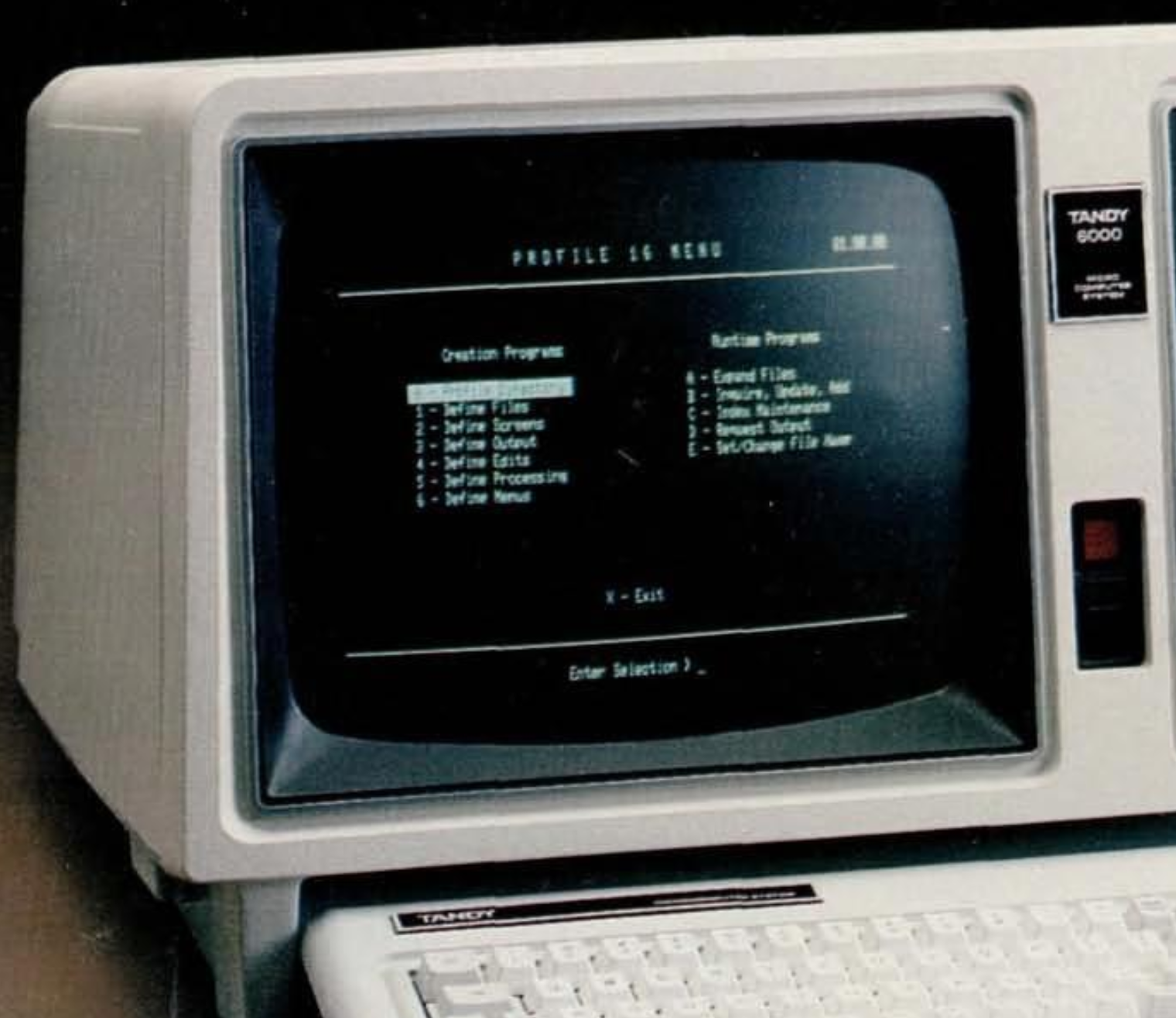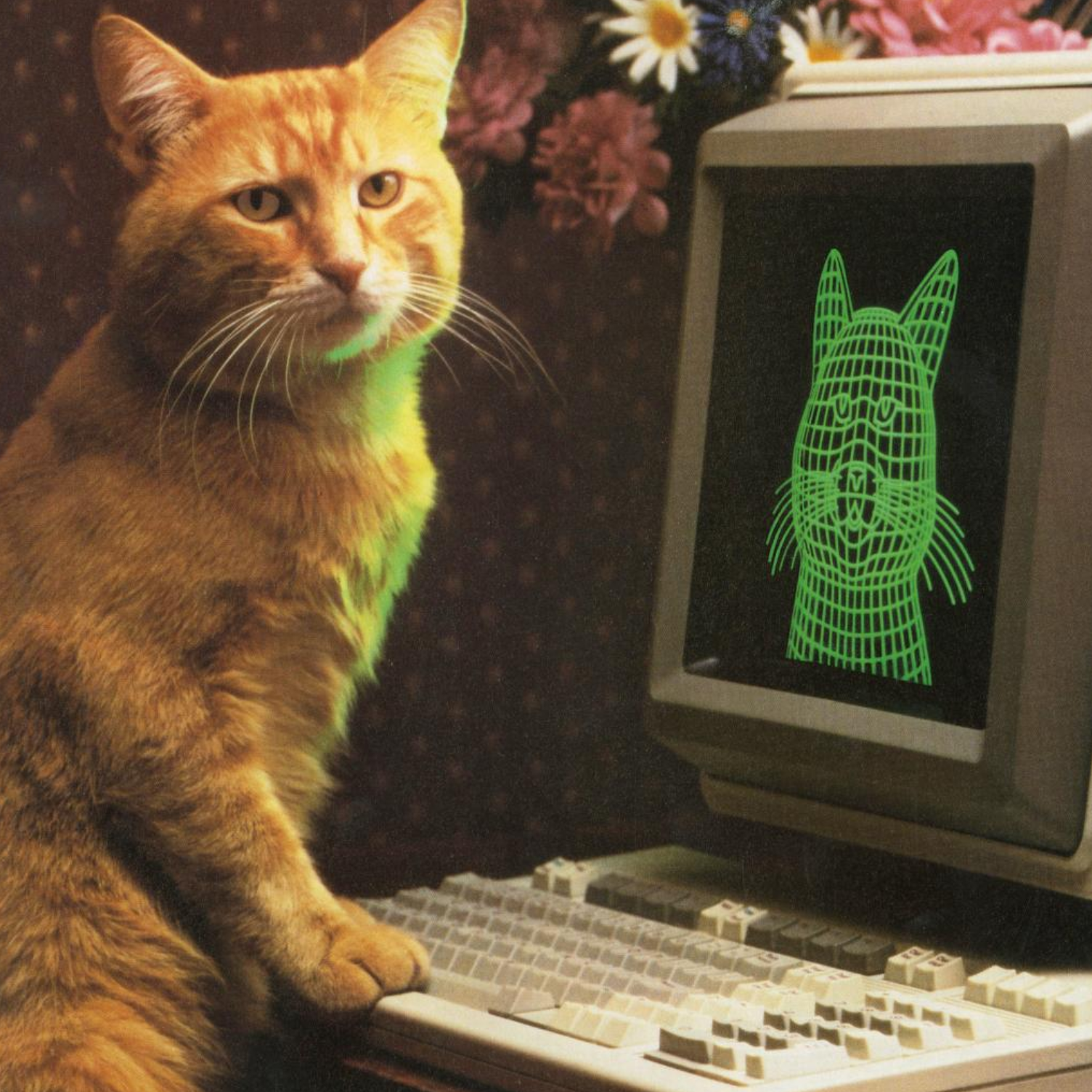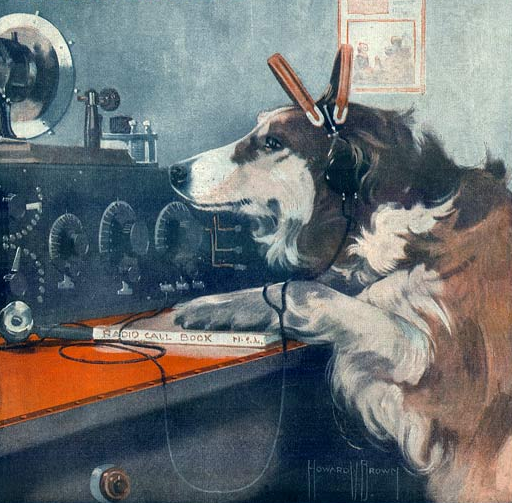- “This reporter” – Just use the first person. It might have worked for Edward R. Murrow, but with tech journalism – particularly blogs – it sounds like a ridiculous affectation. If you wouldn’t say it out loud when retelling a story, don’t write it. (And if you would say this out loud when telling a story, seek professional help.)
- “The company told Acme Publication” – Bullshit. The publication is an abstract entity. Nobody “tells a publication” anything. People talk to reporters, and it’s OK to actually acknowledge that a human exchange took place rather than subsuming the reporter’s place in a story to a drone in the service of a publication. It’s 2012, embrace 1st person voice already.
- “The company said in a statement” – OK, sometimes (but very rarely) there’s an excuse for using this. However, I don’t really care for quoting company statements. Few things scream “rehashed press release” more than just throwing in quotes from press releases/statements. Most publications I’ve written for have strict policies against using quotes from press releases. Either talk directly to the source and try to get more than is in the press release, or just don’t bother quoting them at all.
- “Future plans” – This is just a pet peeve. All plans are future plans. Just say plans. (You also don’t need to indicate that something is your personal opinion. Just say “my opinion,” OK?)
- “Smith believes that” – Really? Are you a psychic? I didn’t think so. It’s impossible for a reporter to know what a source thinks. Maybe the source really believes their company is going to have a great quarter despite losing 2/3rds of their engineering team and having no cash on hand to pay the rest of the engineering team and sales folks. Steve Ballmer may believe that the iPhone has “lost its cool.” More likely, they’re bullshitting you. It’s OK to quote a source saying they believe something, but asserting that they believe something is sloppy.
- “Exclusive” – No one cares.
- “Anything-killer” – I’ve probably done this myself, so mea culpa. But this is so over-used now, and so very often wrong. Mostly, though, it’s the binary nature of the argument that I find most objectionable. It’s possible for two successful products of similar types to co-exist.
- “Is X the New Y?” – No, it’s not. Especially in reference to all the “is X the new Microsoft?” That implies that, you know, Microsoft has stopped being Microsoft, which isn’t at all in evidence. (I suspect even Microsoft would agree with me on that…)
- Other cliches and over-used phrases – It’s not entirely fair to slam writers for using stock phrases when they’re writing several articles a day. Many tech editors and writers complain about headlines that are over-used are dealing with simple fatigue from reading far more headlines/articles than most people. But, some phrases really do need to be culled. For example, “controversy swirled.” This might have been a dramatic and interesting turn of phrase once, but it’s just tired now.
New camera! And new(ish) cat…
Mentioned on Facebook and Twitter, but not so much the blog. A couple of weeks ago I was lucky enough to get a delivery kitty. Some friends in Indiana found a kitten and needed to find a good home for it, and they were nice enough to take a road trip and bring Lilah to St. Louis! Adorable, no?

She’s been here nearly a month, but I just got the new camera yesterday — so as is mandated by the Internet: Anyone with a blog, a camera, and a cat must post about their pet occasionally. I hope this brings me into compliance.
Quick update
If this blog was a child, family services would have taken it away by now…
Sorry for the blog neglect, life’s been a whirlwind of activity for the last month or so. For those of you who don’t know already — I switched jobs at the beginning of September.
I’m now working as the editor-in-chief of Linux Magazine (the original, accept-no-substitutes Linux Magazine, by the way), which is an awesome gig. However, with “awesome” comes a lot of work and a lot of getting up to speed on doing things the print way. After years of doing the online publishing thing, print is a whole new world. (”Word count? What’s that? What do you mean we have to fill space / cut word count? How, exactly, can a paragraph have an orphan?”)
I worked on print stuff in college, and of course I wrote for Linux Magazine for years prior to working for Linux.com, but actually dealing with the layout stuff was pretty new. (Speaking of which — anybody know a Linux proggy that will actually open QuarkXPress docs?)
So, in September I not only took the new job, but also went to VMworld for a week and the Ohio LinuxFest for a weekend. September was chock full of busy and I’m sure that October will be too, but not quite as much.
What have you been up to?
Peak vs. Pique
Here’s another writing pet peeve — when folks confuse peak (or peek), and pique. Here’s an example of proper usage: I live in Denver, Colorado, so I have a lovely view of the mountain peaks when I look to the West, but my interest is piqued when I find a good book about world history.
Instead, what I see most commonly is “this really peaked my interest,” or “I thought this would peek your interest.”
This doesn’t trouble me too much when I see it on blogs, mailing lists, and so forth. I’m used to seeing language atrocities there… but it’s just a different story when it’s something from a communications professional, i.e., from a PR person.
(This post originally posted on Zonker.net, rescued from /dev/null thanks to copy/paste and Archive.org)
How to make money writing, the query letter (or email…)
Prior to taking the job I have now as editorial director for Linux.com, I was a freelancer for about six years, writing for Linux Magazine, Enterprise Linux Magazine, UnixReview.com, Linux Weekly News, IBM developerWorks, ZDNet, and a few others.
I thought I’d share a few tips here that might help prospective authors get a little work on the side, or maybe even start up a freelancing career of their own.
In the tech industry, it’s not necessary to be the world’s best writer to get work. Clean copy that’s accurate and easy to read will be just fine — you don’t have to be John Irving or P.J. O’Rourke to get work. It helps to be a subject matter expert in one or two areas, or to be able to do research rather quickly, if you want to write tutorials and HOWTO type articles.
The first step, though, is to send a query email to the target publication. I’ve written hundreds of queries, and read even more, so let me share a little of what I’ve learned that may help you be more successful in getting a query accepted.
- You should be familiar with the publication, and read their writer’s guidelines thoroughly before submitting a query. Pitching a 8,000 word article to a publication that spells out its preference for 1,500 word articles is a bit silly. Sending in unsolicited manuscripts to a publication is also usually frowned upon — though some publications accept them, you’ll find out through their writer’s guidelines if not.It has been my experience that authors that do not follow the writer’s guidelines generally, if not always, tend to submit articles that are of lesser quality than the writers who follow the guidelines.
- Introduce yourself. If you’re pitching to a publication for a first time, or the first time following a long interval and/or change of editorial staff, you should provide a little information about yourself — such as “Hi, I’m Wana B. Author, and I’ve been using Apache since day two. I have extensive experience as a Webmaster, and I think I’d be an ideal person to write an article about tuning Apache performance.“This is infinitely better than a query that just starts, “What about an article on…?” Once you’ve established a rapport with the editors at a publication, you can be less formal (usually) but it’s best to start off with an introduction.
- Your query should be free of spelling or grammatical errors. When I receive a query that has numerous errors, I have no desire to edit an entire article by the prospective author. Maybe they will make more of an effort when submitting the final product, but why take that chance? If the author can’t even bother to use their Shift key (”hi, i’m a linux admin, and i’d like to write an article on apache.”) I’m probably going to say “no thanks” to their submission.
- Your query should be brief, descriptive, and interesting. I’d say the best queries are no longer than three paragraphs (if they include an introduction) and contain everything an editor needs to know to decide whether an article is suitable or not.For example: The XYZ project has just released version 11.0 of their popular software. I’d like to write an article that looks at the new features in this release, whether users of XYZ 10.0 should upgrade, and how to upgrade or install XYZ if they chose to try it out.The article would be about 1,500 words, and be aimed at users with intermediate or better skills. I could have this to you within three weeks, if you approve this pitch. Instead, what I often see is something like this:I’d like to write an article on XYZ.
Guess which article will be approved?
- Acceptance first, money second. Many publications will publish their pay rates, but if not, wait until after an article is accepted to ask about payment.
- One at a time. Most publications want to have an exclusive on an article for a period of time — could be as little as 30 days, or it could be much longer. You’ll find out once you see the publication’s contract.
- Be prepared for rejection. Don’t expect every pitch to be approved. It’s not personal — and most of the time editors will say why a query isn’t accepted. It’s not unusual, for example, for several people to offer to write articles about GNOME when a new version comes out, or for us to have a staff writer working on something when we receive a query from a freelancer on the same topic. Or, maybe the topic is too general, too ambitious for a full article, or just not quite right. Take a deep breath, wait a day or two, and try again.
If you’re really interested in learning how to write query letters, hit Google for query letters, and you’re bound to find a few samples that you can use to start with.
(This post rescued from the dustbin of history thanks to the copy saved by archive.org.)
Things that don’t happen in Star Trek
I’m pacing myself… 🙂 This list is obviously pre-Enterprise. (How many folks in the audience watch “Enterprise” faithfully?)
1. The Enterprise runs into a mysterious energy field of a type it has encountered several times before.
2. The Enterprise goes to visit a remote outpost of scientists, who are all perfectly alright.
3. Some of the crew visit the holodeck, and it works properly.
4. The crew of the Enterprise discover a totally new lifeform, which later turns out to be a rather well-known old lifeform wearing a funny hat.
5. The crew ofthe Enterprise are struck by a mysterious plague, for which the only cure can be found in the well-stocked Enterprise sick-bay.
6.The Captain has to make a difficult decision about a less advanced people which is made a great deal easier by the Starfleet Prime Directive.
7. The Enterprise successfully ferries an alien VIP from one place to another without serious incident.
8. An enigmatic being composed of pure energy attempts to interface to the Enterprise’s computer, only to find out that it has forgotten to bring the right leads.
9. A power surge on the Bridge is rapidly and correctly diagnosed as a faulty capacitor by the highly-trained and competent engineering staff.
10. The Enterprise is captured by a vastly superior alien intelligence which does not put them on trial.
11. The Enterprise is captured by a vastly inferior alien intelligence which they easily pacify by offering it some sweeties.
12. The Enterprise visits an earth-type planet called “Paradise” where everyone is happy all of the time. However, everything is soon revealed to be exactly what it seems.
13. A major Starfleet emergency breaks out near the Enterprise, but fortunately some other ships in the area are able to deal with it to everyone’s satisfaction.
14. The Enterprise is involved in a bizarre time-warp experience which is in some way unconnected with the Late 20th Century.
15. Kirk (or Riker) falls in love with a woman on a planet he visits, and isn’t tragically separated from her at the end of the episode.
16. Counsellor Troi states something other than the blindingly obvious.
17. The warp engines start playing up a bit, but seem to sort themselves out after a while without any intervention from boy genius Wesley Crusher.
18. Wesley Crusher gets beaten up by his classmates for being a smarmy git, and consequently has a go at making some friends of his own age for a change.
19. Spock (or Data) is fired from his high-ranking position for not being able to understand the most basic nuances of about one in three sentences that anyone says to him.
20. Most things that are new or in some way unexpected.
(This is an old post revived from backups of my blog found on Archive.org. Bless those folks.)
Home again, home again…
There’s nothing like the feeling of returning home after a trip, particularly when you’ve been driving all over the place and having to stay in bunch of different places.
Got back from Missouri last night. Drove 70 through Kansas, which has to be one of the most boring stretches of road ever. It would be better if the speed limit were higher, say 90 or so. This was a good trip, speeding-wise, though. I saw quite a few state troopers out and about in Kansas and Missouri – but they all had other people pulled over or were getting ready to pull other people over when I was doing the speed limit. I still think that you should be able to just buy a pass at the beginning of each year for up to 3 speeding tickets. Get pulled over, just hand the pass over and no ticket. Kind of like an indulgence.
While I enjoy visiting my friends and family that live in Missouri, there’s nothing like sleeping in your own bed and having all your stuff in one convenient place. Not to mention having high-speed Internet and being able to walk about in your boxers without offending anyone…
Brought two of my younger siblings back with me to Colorado. So far we’ve been having a pretty good time, though my youngest brother is frothing at the mouth because I haven’t been letting him listen to his vampire/goth stuff in the car. (He who owns the car and does all the driving gets to pick the CDs, I’m pretty sure that should have been one of the commandments. Might have been omitted because Moses decided that “Thou shalt respect the driver’s tunes” would have confused too many people…)
Saw “About a Boy” in Columbia with my friend Hannah while my brothers watched “Spider-Man.” There are some good things about multi-plexes… “About a Boy” was quite good, perhaps better than I expected. I wasn’t avoiding “Spider-Man,” I’ve already seen it.
I never, ever want to drive through Kansas again. Ever. Unfortunately, the options are limited to not visiting my friends and family in Missouri, paying outrageous airfare between Denver and St. Louis, driving all the way through Kansas, or paying decent airfare between Denver and Kansas City and renting a car to drive to St. Louis. Normally, flying into Kansas City is the best option – but since I was bringing back passengers driving through Kansas was the only option. Amtrak is way too expensive these days, not to mention they really don’t have a decent route between Denver and St. Louis, and I’m not too big on buses. It’s been more than 30 years since Star Trek – where the hell are our transporters, anyway? Teleportation couldn’t be any more harrowing than flying…
This weekend, weather permitting, looks like a good time to go to Estes Park so my brothers can get a better look at the mountains. I’ll be taking my digital camera, so if pictures of the Rocky Mountains and surrounding scenery sounds interesting be sure to check back Monday-ish.
(An old post copied into WordPress from Archive.org. Pardon the terrible writing I was a youngster then.)





